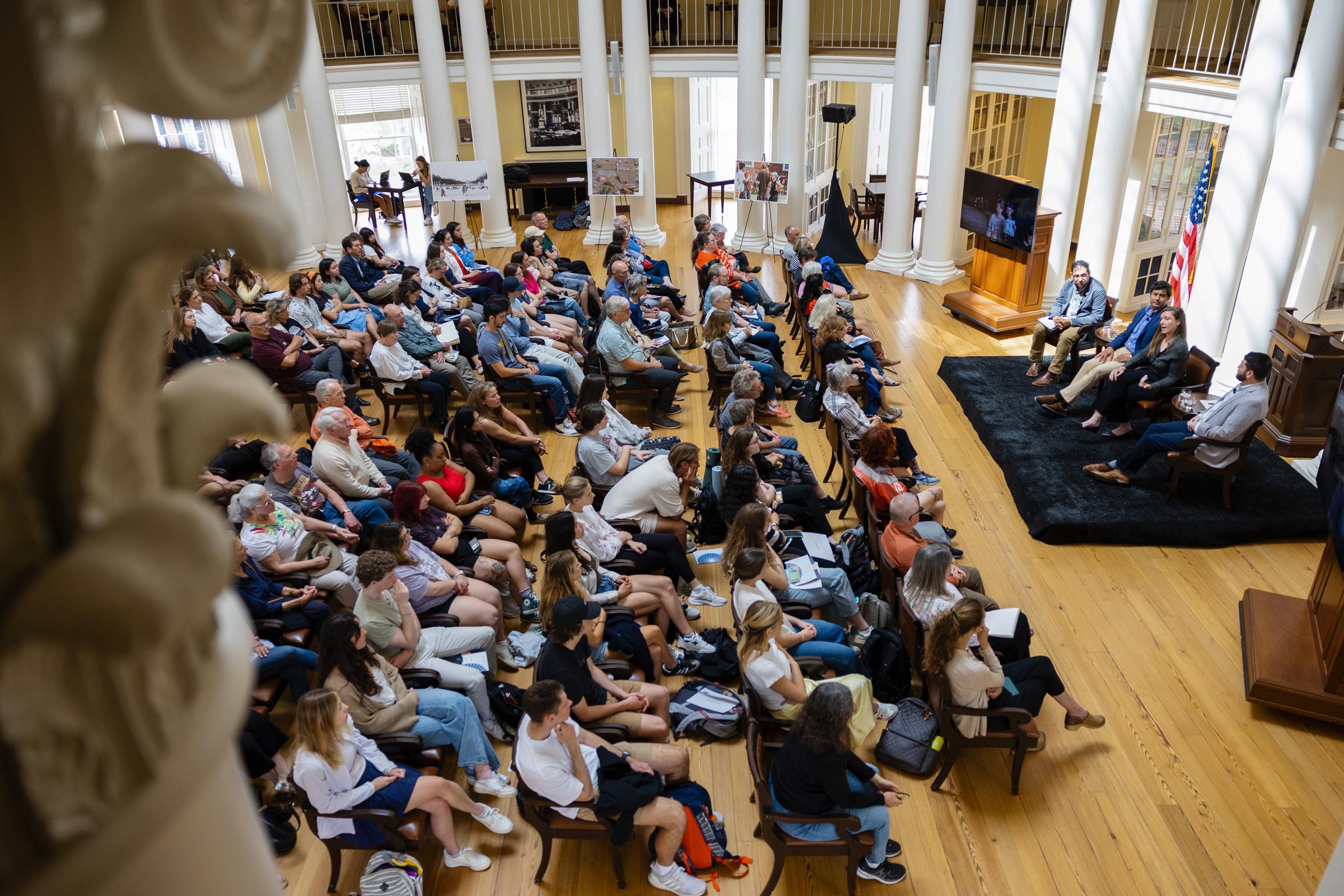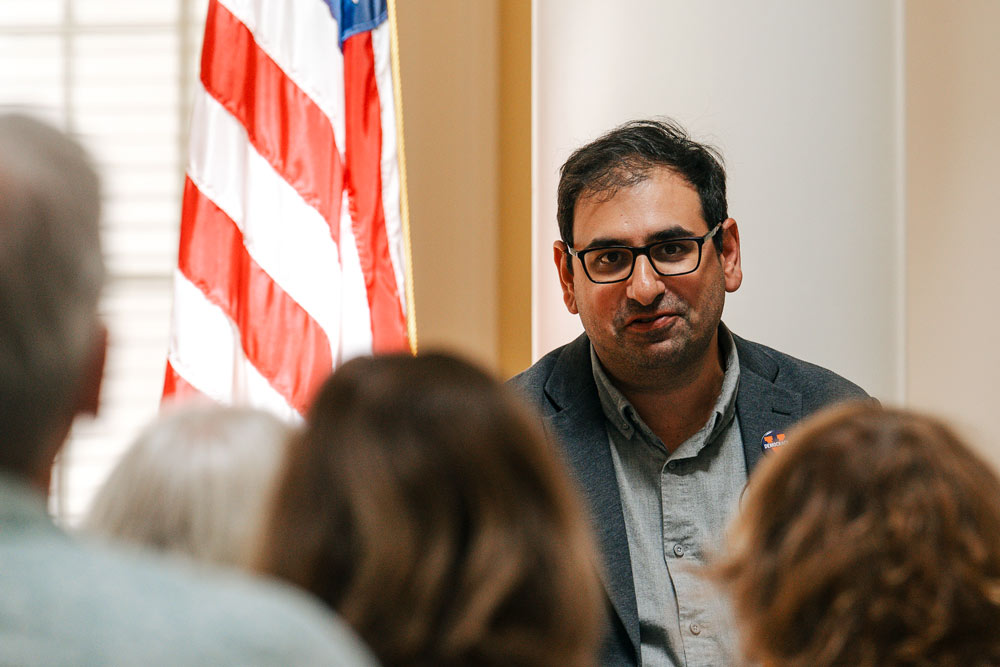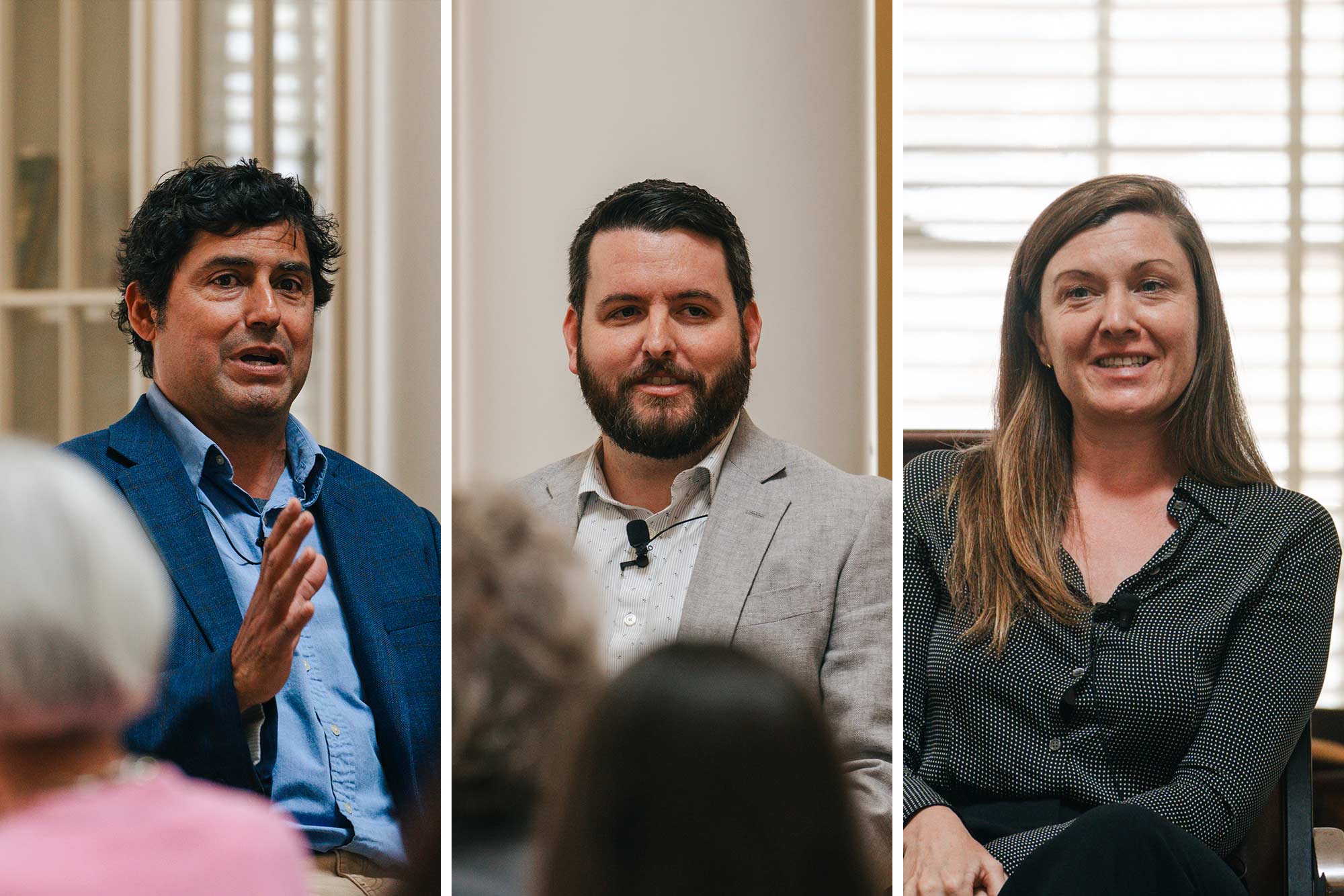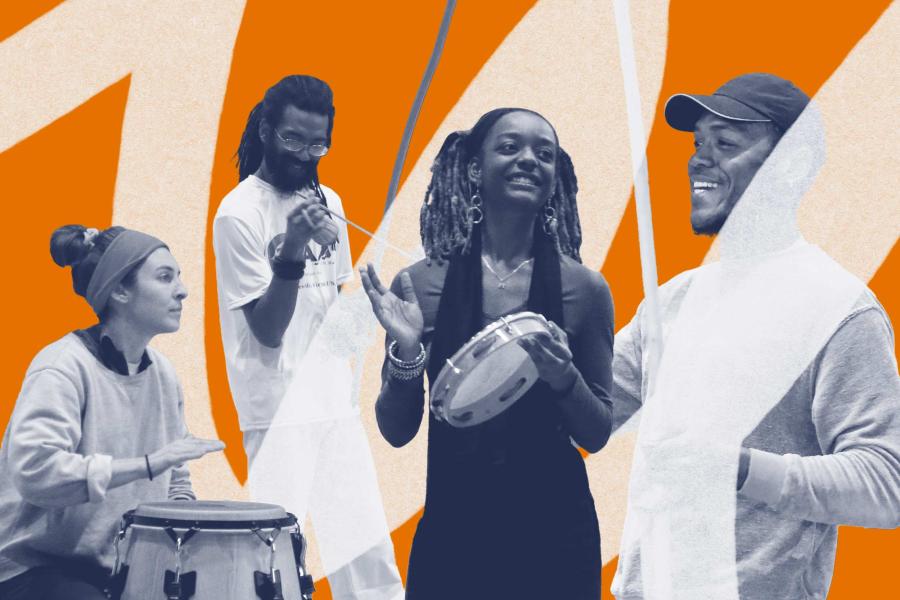The challenges today’s photojournalists face were among the themes of an event held Tuesday in the Rotunda’s Dome Room. Suchak hosted the panel discussion, “Photojournalists on the Front Line: The Emotional Toll,” co-hosted by the Karsh Institute and Public Service Pathways.
The panel included photojournalists Kirsten Luce, Michael Robinson Chávez and Ryan Kelly, each speaking about experiences that have taken them all over the world, from the front lines in Ukraine to the United States-Mexico border.
Chávez, a two-time Pulitzer Prize–winning photographer who worked for The Washington Post for 15 years, said the job is to go where the story is. “I’m there to bring you there,” he said.
For Kelly, it was an assignment that didn’t require any travel that made an impact on him. He was the staff photographer for The Daily Progress from 2013 to 2017. His last assignment in his tenure with the paper was photographing the Unite the Right rally in Charlottesville in August 2017.
Kelly, now a freelance photographer in Richmond specializing in news and sports, said it never gets easier to photograph challenges and tragedies. Kelly won the 2018 Pulitzer Prize in Breaking News Photography for his image of the tragic Aug. 12, 2017 car attack that killed Heather Heyer and injured more than 30 others.
He said he was “glad it was documented” because it made the news of the attack more visceral to people across the nation hearing about the events of that day.
“You can’t look away from that photo. You have to be affected by it,” Kelly said.
The photojournalists went on to emphasize the important role photography plays in the world of journalism, adding humanity and clarity to the written word.
“That is the whole point of what I do,” said Luce, an independent photojournalist based in Brooklyn, New York, who regularly contributes to The New York Times and National Geographic. “I’m hoping to use images of real-life, unscripted events that are happening to try to add to the conversation.”
The photographers told the crowd that fact-based news is a critical component to democracy and ethical photojournalism is key to keeping people informed. Panel members agreed while it’s important to remain objective, human interactions, asking important questions and empathy are also essential tools for photographers to create images that are compelling, relevant and true. Luce emphasized the need to “be present. Be human.”
In a final question from the audience, the panelists were asked if they ever want to step away from their role as documentarians and help the people in front of them.
“About a million times,” Chávez said.
“I think that’s the nature of being human,” Suchak concluded.







